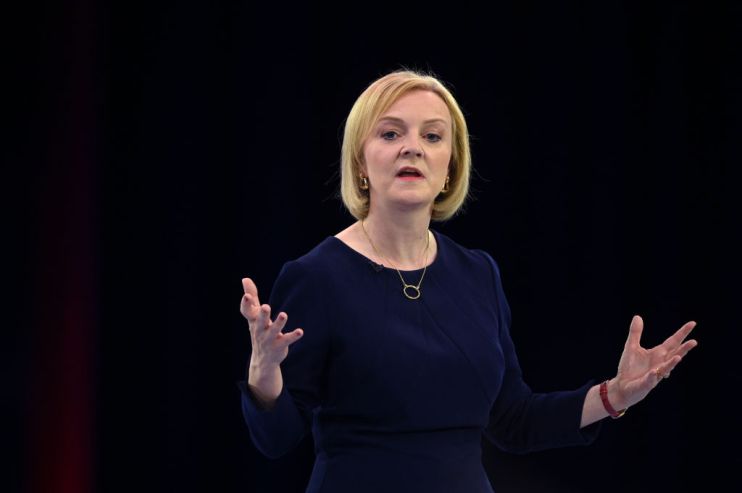Truss vows to slash taxes for SMEs and to unleash ‘business revolution’

Liz Truss has promised to slash taxes for British SMEs and unleash a “business revolution” in the UK if she is crowned Prime Minister next month.
Truss said that her government would “back business to deliver” and “stop putting so much red tape, so much tax on business”.
The foreign secretary told The Sun On Sunday that this would include a review of the IR35 tax rules, which is legislation that tries to reduce tax avoidance by self-employed workers.
The new rules are “all about trying to treat the self-employed the same as big business” and “should reflect” the fact that self-employed people do not have work entitlements, Truss said.
“I believe that we can grow the British economy faster,” she said.
“But we need to back business to deliver and we need to stop putting so much red tape, so much tax on business, and we need to get on with delivering things quicker.”
Tina McKenzie, policy director at the Federation of Small Businesses (FSB), said: “The UK’s small businesses and self-employed are being squeezed to the brink by a toxic combination of soaring energy bills, rampant inflation, and sky-high taxation. The only thing heading in a downward direction is economic growth.
“The cost of living crisis can’t be solved without also addressing the cost of doing business crisis, and it is a relief to see this rising up the political agenda.”
The UK’s quarterly GDP fell by 0.1 per cent in April to June this year, with the Bank of England predicting another contraction and therefore a recession in the next quarter.
Inflation is also at its highest level in 40 years and the Bank predicts it will reach 13 per cent.
However, Truss said “I don’t believe [a recession] is inevitable”.
Truss is expected to win the Tory leadership contest, with every poll of party members putting her 30+ points ahead of rival Rishi Sunak.
She has promised £34bn of tax cuts, which includes a reversal of a recent National Insurance increase and a cancellation of a planned rise in Corporation Tax for the UK’s most profitable firms.